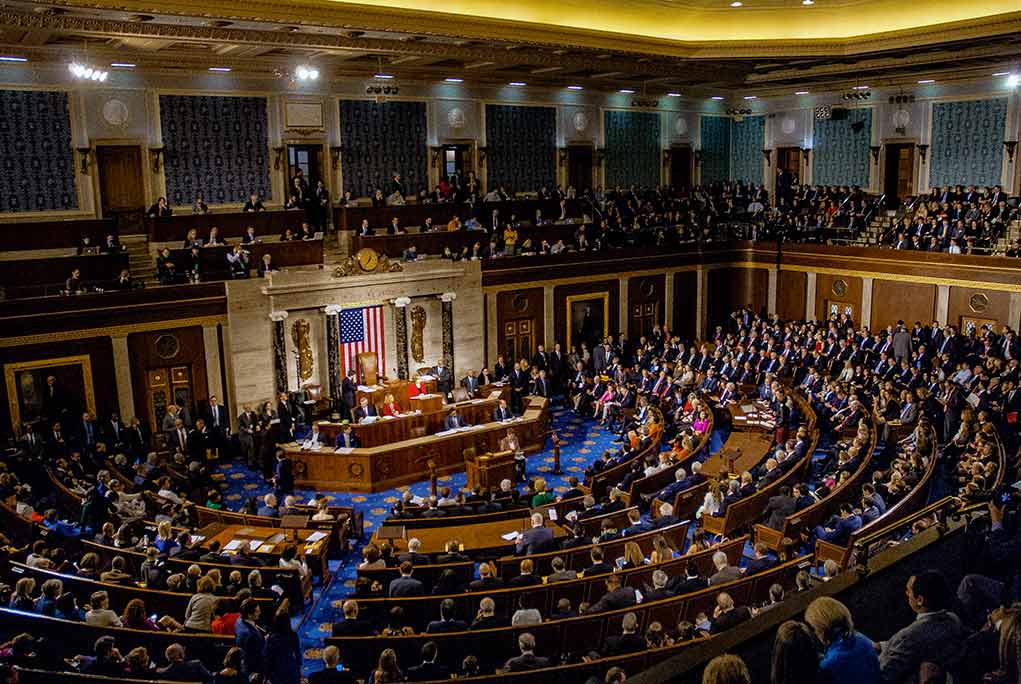
In the early hours of Friday morning, the Senate confirmed retired Lt. Gen. Dan “Razin” Caine as the new Chairman of the Joint Chiefs of Staff, ending a contentious transition period marked by political wrangling and concerns over military leadership changes.
Key Takeaways
- The Senate confirmed retired Lt. Gen. Dan Caine as Chairman of the Joint Chiefs of Staff in a late-night vote before a two-week recess.
- Caine’s confirmation follows President Donald Trump’s dismissal of former Chairman Gen. Charles Q. Brown Jr. in February.
- The vote received bipartisan support despite initial Democratic concerns about rapid changes in military leadership.
- Caine is considered an “unconventional” choice requiring a special presidential waiver due to not meeting standard legal requirements.
- Senate Armed Services Committee Chairman Roger Wicker played a key role in pushing the confirmation forward.
Bipartisan Approval After Contentious Delay
The Senate’s confirmation of retired Lt. Gen. Dan “Razin” Caine as the new Chairman of the Joint Chiefs of Staff came in an unusual predawn vote, occurring just before 2 a.m. on Friday. The timing reflected the urgency felt by Senate leadership to complete the confirmation before lawmakers departed for a two-week Easter and Passover recess. Senate Armed Services Committee Chairman Roger Wicker spearheaded efforts to ensure Caine’s confirmation wouldn’t be further delayed, emphasizing the importance of military leadership continuity despite earlier controversy.
Despite initial resistance from some Democrats concerned about the abrupt leadership changes at the Department of Defense, the final vote was 60-25, signaling bipartisan support. Caine had previously secured approval from the Senate Armed Services Committee with a convincing 23-4 vote, signaling broad acceptance across party lines. Several Democratic senators ultimately joined their Republican colleagues in confirming Caine.
Senate confirms ‘Razin’ Caine to lead Joint Chiefs https://t.co/z4yPS3YKRH
— POLITICO (@politico) April 11, 2025
Democrats’ Pushback Surrounding Military Leadership Changes
The leadership transition began with President Donald Trump’s dismissal of former Chairman Gen. Charles Q. Brown Jr. in February, a move that was strongly opposed among many Democrats who argued it constituted the politicization of the armed forces. The firing represented an unusual disruption in military leadership continuity, with critics questioning whether such changes might undermine the traditional separation between military operations and political considerations. These concerns contributed to the Democrats’ initial reluctance to move forward with Caine’s confirmation process.
An “Unconventional” Military Leader
Caine’s appointment stands out as particularly notable due to his admission that he is an “unconventional” choice for the chairmanship. With over three decades of distinguished service in the Air Force, Caine brings substantial military experience but required a special waiver from Trump to assume the role because he does not meet all standard legal requirements for the position.
During his confirmation hearing, Caine acknowledged the unusual nature of current geopolitical circumstances, framing his own unconventional appointment as potentially beneficial in addressing the complex challenges facing the United States military. His extensive Air Force background provides him with specialized expertise, though some defense analysts have noted the potential adjustment required for leading joint operations across all military branches.
Sources
- Senate confirms Dan Caine to lead Joint Chiefs in late-night vote
- Senate confirms ‘Razin’ Caine to lead Joint Chiefs
- Senate confirms Lt. Gen. Dan Caine to lead Joint Chiefs in overnight vote




